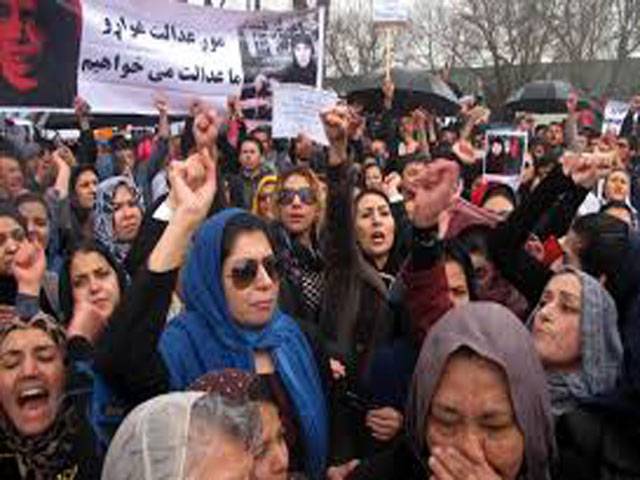KABUL-For a generation, Roya Sadat has been a voice for Afghan women in one of the world’s worst places to be one.
One of the first female filmmakers to make her name after the fall of the Taliban in 2001, she has won plaudits at home and abroad for works such as “A Letter to the President”, and “Three Dots”, and “Playing the Taar”.
She has lived through the Soviet occupation -- fleeing with her family for their lives at times -- endured the brutality of civil war, and then the violent oppression of Taliban rule, where women existed only in the shadows and basic freedoms were lost. Her great fear is a return to that kind of fundamentalism: The February 29, US-Taliban deal may be a potential first step for peace in a nation that for decades has only known war, but it offers no guarantees the few women’s rights set out in the current constitution will be upheld.
“I feel concerned when I remember how we had simply been forgotten during the five-year Taliban rule until 9/11 happened,” says the 37-year-old, adding: “If the international community approaches [Afghanistan] as an open and shut scenario and abandons us again, there will undoubtedly be grave consequences.”
Almost 39 percent of girls go to secondary school according to World Bank figures for 2017, while USAid says that of the 300,000 students in universities, around one third are female citing figures from the Afghan Ministry of Higher Education. These figures are predominantly for urban areas but twenty years ago it would have been all but impossible everywhere.
“There are many good changes happening, coming from the heart of society,” Sadat says, but concedes there is a huge amount to be done.
Afghanistan ranks last in the Georgetown Institute for Women, Peace and Security index which measures well-being and self-reliance. In rural areas, female literacy can be less than two percent and rights are often even more constrained by conservative tradition.
‘Era of suffocation’
She is not alone in fearing that the small inroads made in women’s rights may disappear -- in urban centres young people have grown up listening to music, watching television, and more recently accessing the internet and social media. Many have only seen the Taliban on the news. Sadat, who has been writing stories, poems and plays since she was a little girl, recalls how her life ground to a halt in 1996 as the Taliban rolled in.
Schools closed, women were confined to their homes, the televisions and radios stopped playing. A precocious teenager she continued to write indoors, and read books on directing from her father’s collection. She was allowed to work as a nurse as women could only get female medical help, and even set up clandestine cultural performances of her plays in the hospital, even though the head of it was linked to the Taliban.
“It was very dangerous. I still find it hard to believe that we were able to,” she says. Her first work, “Three Dots”, which tells the tale of a single mother who is forced to marry a warlord and become a drug smuggler, was penned during this period, but only made -- using simple equipment -- once the regime changed and she could channel all the knowledge accrued from surreptitious reading, into real world creativity.
Friday, April 19, 2024
Voice of the unknown woman: Afghan filmmaker Roya Sadat

SC suspends ECP’s re-polling order in PP-51
April 19, 2024
Court approves plea bargain of Parvez Elahi’s co-accused
April 19, 2024
Zardari creates another parliamentary record
April 19, 2024
KP politicians, civil society laud President’s address
April 19, 2024
A Tense Neighbourhood
April 19, 2024
Dubai Underwater
April 19, 2024
X Debate Continues
April 19, 2024
Hepatitis Challenge
April 18, 2024
IMF Predictions
April 18, 2024
Kite tragedy
April 19, 2024
Discipline dilemma
April 19, 2024
Urgent plea
April 19, 2024
Justice denied
April 18, 2024
AI dilemmas unveiled
April 18, 2024
ePaper - Nawaiwaqt
Advertisement
Nawaiwaqt Group | Copyright © 2024





